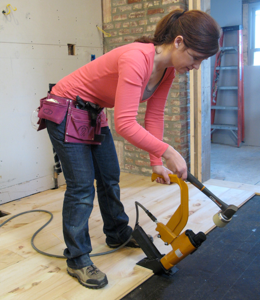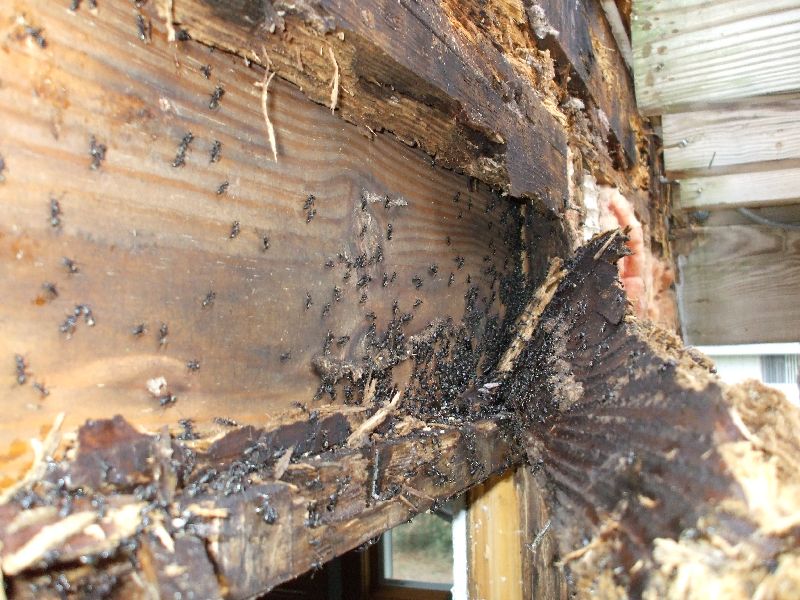
It may start out as just trying to save money, but DIY projects have a sneaky way of developing a collection of handy skills that transform a house owners into clever and smart homeowners.
While many savvy homeowners already know that the easy makeovers seen on TV and YouTube aren’t exactly detailing all of the steps and messes that we encounter along the way toward a finished project, it’s hard to resist the temptation to start big and tear out a much unloved bathroom or bank of kitchen cabinets that are mercifully squeezed into a small kitchen footprint.
Even though our heart strings are quietly tugged from time-to-time by the vision of a better bathroom, we always preach that it’s best to start small and create detailed plans for any home project endeavor. So how can a smart homeowner transform a house into a dream home if they are taking small steps? It’s easy.
The skills developed during each project build each time, making you a better planner, budgeter, carpenter, and designer. You’ll gain huge ground—without going into debt or losing out on all prospects of pleasure—by doing a little bit at a time. And thanks to the friendly and helpful worldwide community of DIY hobbyists and experts, it’s easy to start learning.
DIY skills also deliver other benefits, which are rarely discussed and should be celebrated. You become a savvy homeowner who is wise and clever about houses.
Gain a clearer view of the property market.
Experienced DIYers become adept in knowing how homes operate, where the real value lies, which features are important, and how structure matters much more than first-impression decors. For this reason, house-hunting becomes a more focused exercise, and you’re less likely to be taken in by the pitch of a realtor or an astute house stager.
Understanding houses helps open the door to additional opportunities you may not have considered otherwise. For example, for those who have progressed through a major home renovation or structural change to a property, there’s insight and knowledge about what to consider when investing in a possible fixer upper. With these skills, you may decide that taking on a fixer-upper is worth it. Plus, you’ll be able to more clearly see the quality of past work on homes.
On the other hand, you’ll also learn of the upgrades buyers want to see when looking for new property. This helps you define the scope and budget for a home renovation so you can maximize your potential value when selling. Those efforts go a long way toward improving your position on the property ladder.

A DIY hobby maximizes smart utility.
When you’re adept at DIY, you become deeply familiar with the structure of your property, as well as its limitations. Here you can identify potential much more easily and begin to weigh the pros and cons of each investment.
For example, you may notice that your roof needs repair after implementing better insulation in your attic space. A roof repair is an ideal time to consider adding solar panels and becoming less dependent on the grid.
In the same vein, savvy home features that include smart doorbell cameras, smart thermostats, home assistants, and household appliances can be properly integrated to work with one another. Being able to assess the house and see the opportunities for installation without damaging the overall aesthetic and character of your home decor is a valuable skill.
This isn’t to say you’ll become a construction expert overnight, but by practicing DIY you begin to gain an appreciation for the confines of your property and where potential still lies. That can help delineate a better homeowning vision for the future.
- After It Snows, Should I Wait to Wash My Car?
- Tool Review: Klein Tools Backpack is Built Tough
- Can My Car Battery Power My Furnace During Power Outage?
- How to Keep Your Family Safe During a Snowstorm
- The Best Snow Tools for Managing Winter
Catch emerging emergency repairs much sooner.
Even a seemingly robust home can suffer structural damage or a small issue that quickly escalates over time. That’s because every DIY project requires a quasi-home inspection. It’s important to make sure that the area is sturdy and ready for whatever repair you’re hoping to make.
For example, when clearing out a crawlspace for better insulation and waterproofing, you may notice damp buildings or even signs of pests that can inspire you to seek an immediate solution. While redoing your garden patio you may notice signs of foundational shift or soil erosion which will need to be addressed quickly.
You may also become familiar with the general practices of smart home upkeep. After spending so much time on your house, you’ll understand the warning signs of a leaking pipe and exactly when your gutters needs to be cleaned.
As every homeowner understands, an issue caught early could potentially save untold thousands of dollars in damage expenses, and even help a home remain habitable when it might not have been guaranteed.
Gain proficiency in clever talents and interests.
As you keep progressing and gaining new DIY skills, projects naturally become larger and—when carefully executed—can save a lot of expense. For example, retiling a bathroom space may seem quite difficult to begin. However, it can save you thousands from a hiring a handyman or remodeling firm.
You also learn your limits and when it’s worth hiring a pro, which is important. For beginners, general plumbing and electrical work, without qualified capabilities, are important to steer well clear from. These practices can be dangerous at best, and most every municipality in the U.S. requires permits and inspections for these types of projects.
However, you’ll also find that DIY is not only a general discipline. It can also lead you to certain specialties that may inspire you to take your handy practice further. For example, you may become interested in basic woodworking, putting together a bedside table, refinishing your kitchen table, or adding new chair legs when reupholstering furniture.
You don’t have to become a jane or jack of all trades. Simply focus on the DIY specialties you love and become talented in those areas. For example, some may even prefer sewing and fabric repair so they can whip up a brand new pair of curtains whenever needed, or knit or crochet a throw for their sofa.
Bonus: There’s always something new to learn.
Make sure to browse our website for guides on all manner of DIY, home remodeling, and renovation tips. There’s a limitless amount of techniques and practices to learn when becoming a smart homeowner.
About the Author






